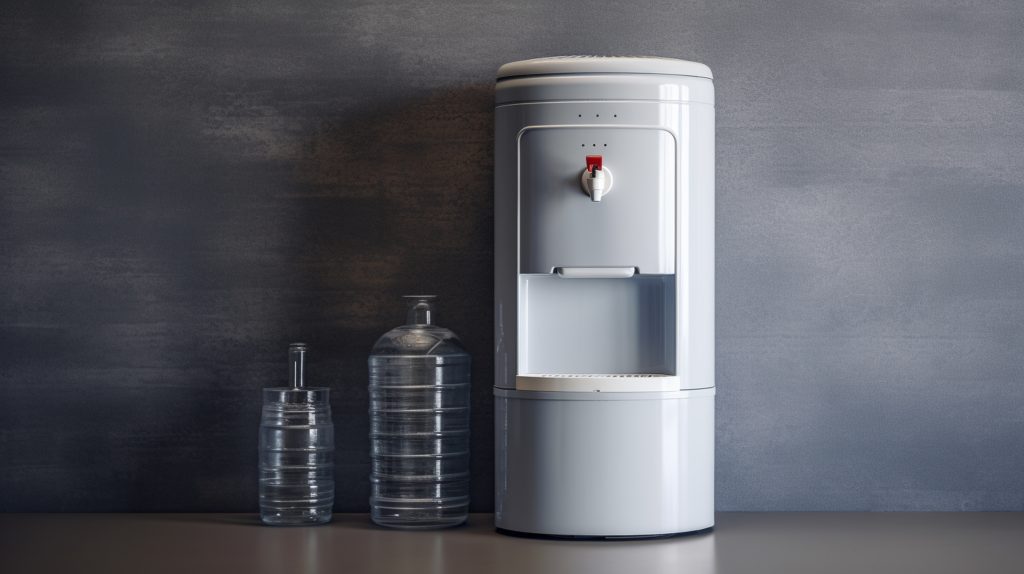The environmental impact of plastic waste is a pressing issue that demands innovative solutions. Single-use plastic bottles, particularly those used for drinking water, contribute significantly to global pollution. With the growing awareness of this issue, many are seeking ways to reduce their plastic footprint. One effective solution is the use of water dispensers. Here’s a closer look at how water dispensers can help tackle plastic waste and why they are a valuable investment.
The Environmental Impact of Plastic Bottles
Plastic bottles are widely used for convenience, but their environmental impact is profound. Each year, millions of plastic bottles are discarded, many of which end up in landfills or oceans. This not only contributes to pollution but also harms wildlife and ecosystems. The production of plastic bottles involves significant energy and resources, further exacerbating environmental concerns.
How Water Dispensers Make a Difference
Water dispensers provide a practical and eco-friendly alternative to bottled water. Here’s how they contribute to reducing plastic waste:
Dramatic Reduction in Single-Use Plastics: By offering a source of clean, filtered water directly from the dispenser, users can refill their own reusable bottles. This shift drastically reduces the consumption of single-use plastic bottles and lessens the volume of waste generated.
Economic Benefits: Investing in a water dispenser can lead to long-term savings. While the initial cost might be higher than purchasing bottled water, the ongoing cost of using a water dispenser is generally lower. This makes it not only an environmentally friendly choice but also a cost-effective one.
Improved Water Quality: Many modern water dispensers are equipped with advanced filtration systems that ensure the water is clean and free from contaminants. This provides a high-quality drinking option that can replace the need for bottled water, which is often chosen for perceived quality reasons.
Encouraging Sustainable Habits: Using a water dispenser encourages a shift towards sustainable practices. It serves as a reminder of the importance of reducing plastic waste and fosters a culture of environmental responsibility.

The Growing Adoption in Malaysia
In Malaysia, the move towards water dispensers is becoming more prevalent as environmental awareness increases. Businesses, schools, and households are adopting water dispensers to reduce their plastic waste footprint. This shift reflects a broader commitment to sustainability and a growing recognition of the need to address plastic pollution.
For Malaysians looking to make a positive environmental impact, incorporating a water dispenser into their daily routine is a practical step. Whether for personal use or within a larger organization, water dispensers offer a convenient and effective way to reduce reliance on plastic bottles.
Addressing the issue of plastic waste requires both individual and collective action. Water dispensers represent a valuable tool in this effort, offering a sustainable alternative to single-use plastic bottles. By opting for water dispensers, individuals and organizations can contribute to a reduction in plastic waste, promote environmental stewardship, and support a cleaner, healthier planet. Embracing this solution aligns with broader sustainability goals and fosters a culture of responsible consumption.
FAQ: Reducing Plastic Waste with Water Dispensers
1. How do water dispensers help reduce plastic waste?
Water dispensers help reduce plastic waste by providing a direct source of clean, filtered water, which eliminates the need for single-use plastic bottles. Users can refill their reusable bottles from the dispenser, significantly decreasing the volume of plastic waste generated from bottled water.
2. Are water dispensers effective in improving water quality?
Yes, many water dispensers are equipped with advanced filtration systems that remove contaminants and improve the taste and quality of the water. This makes them a viable alternative to bottled water, which is often chosen for its perceived purity.
3. What are the economic benefits of using a water dispenser?
While there is an initial investment in purchasing a water dispenser, the long-term savings are substantial. Using a water dispenser reduces the need to buy bottled water, which can be more expensive over time. This makes water dispensers a cost-effective option for both individuals and organizations.
4. Can water dispensers be used in both homes and businesses?
Absolutely. Water dispensers are versatile and suitable for a variety of settings, including homes, offices, schools, and other businesses. They are available in different sizes and styles to meet various needs and preferences.
5. How do I maintain and clean my water dispenser?
Maintenance and cleaning are crucial for ensuring the optimal performance and hygiene of your water dispenser. Regularly clean the dispenser’s exterior and water reservoir with mild detergent and water. Follow the manufacturer’s instructions for deep cleaning and filter replacement to keep the dispenser functioning properly.
6. Are there different types of water dispensers available?
Yes, there are several types of water dispensers, including countertop models, freestanding units, and wall-mounted versions. They may also offer different features, such as hot and cold water options or built-in filtration systems. Choose a model that best fits your needs and space requirements.


